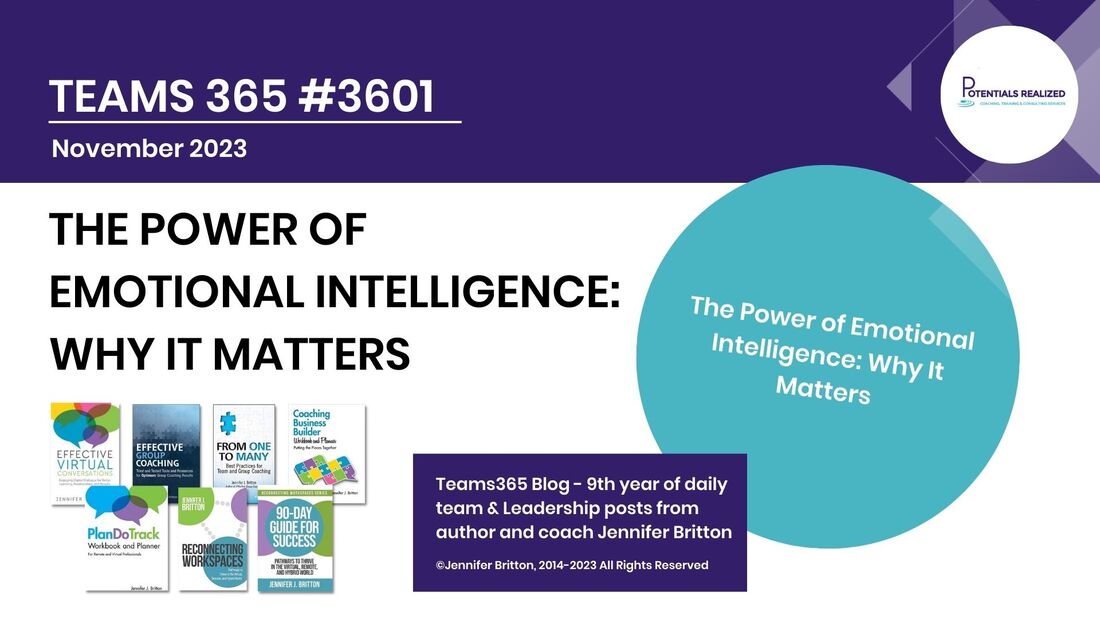1. Self-Awareness:
Emotional intelligence starts with self-awareness. It's the ability to recognize and understand your own emotions, including their causes and effects. Self-awareness allows you to manage your reactions and make informed decisions based on your emotional state.
2. Self-Regulation:
Once you're aware of your emotions, emotional intelligence helps you control them. Self-regulation enables you to handle stress, remain calm under pressure, and avoid impulsive decisions. This quality is essential in managing conflicts and making sound choices in both personal and professional life.
3. Empathy:
Empathy is the capacity to understand and share the feelings of others. Emotional intelligence encourages you to tune in to the emotions of those around you, allowing for better interpersonal connections. Empathetic individuals are more compassionate and capable of providing support when needed.
4. Effective Communication:
Being emotionally intelligent leads to improved communication. It allows you to convey your thoughts, opinions, and feelings clearly while also understanding the emotional state of others. Effective communication fosters collaboration, teamwork, and conflict resolution.
5. Enhanced Leadership:
In leadership roles, emotional intelligence is a valuable asset. Leaders with high EQ can inspire and motivate their teams. They create an environment of trust and open communication, leading to higher employee morale and performance.
6. Conflict Resolution:
Emotional intelligence equips you with the skills to navigate conflicts effectively. Instead of reacting emotionally, you can approach conflicts rationally, seeking common ground and mutually beneficial solutions.
7. Better Relationships:
Healthy relationships are built on understanding and managing emotions. Emotional intelligence enables you to connect with others on a deeper level, fostering trust, empathy, and mutual respect.
8. Stress Management:
High levels of emotional intelligence can reduce stress and anxiety. The ability to manage your own emotions and recognize when you need a break can contribute to overall well-being and mental health.
9. Decision-Making:
Emotional intelligence plays a significant role in decision-making. It allows you to evaluate the emotional implications of your choices and make decisions that align with your values and long-term goals.
10. Adaptability:
In an ever-changing world, adaptability is a valuable skill. Emotional intelligence helps you navigate change by allowing you to embrace new situations and challenges with a positive mindset.
In summary, emotional intelligence is crucial for personal and professional success. It's not just about understanding your own emotions but also about recognizing and managing the feelings of others. By fostering emotional intelligence, you can enhance your self-awareness, self-regulation, and interpersonal skills, leading to improved relationships, effective communication, and overall well-being. In an increasingly interconnected world, developing your emotional intelligence can be a game-changer, contributing to a more fulfilling and prosperous life.
Potentials Realized |Reconnecting Workspaces | Group Coaching Essentials
Team and Leadership Development | Coaching | Retreats
Follow us on Instagram @ReconnectingWorkspaces
Follow us on TikTok at https://www.tiktok.com/@groupcoach
Phone: (416)996-8326
Reach out to book a conversation regarding how your team can benefit from the Everything DiSC. Send an email to Jennifer OR book a call
Check out my TEDx talk on Coaching Teams Through Chaos and the Six Factors™
Looking to bring your workplaces back together, whether you are remote, hybrid, or face-to-face? Pick up a copy of my new book, Reconnecting Workspaces, at Amazon.

 RSS Feed
RSS Feed





